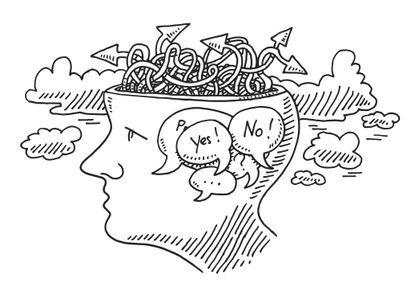What does all that home insurance jargon actually mean?
Understanding your home insurance policy is essential so you know exactly what is and isn't covered


Confused by the terms insurers use in their policy wording when buying home insurance? Here is a list of the most common ones you’ll come across and what they mean.
Consequential loss
An indirect loss arising from an insurance claim – for example, the loss of rental income after the property insured by a landlord is destroyed by fire.
Contingency
A potential future event that is covered by your insurance policy, such as theft or flooding.
Employer’s Liability Insurance
If an employee working in your home suffers a serious or fatal injury or illness, insurers will pay the costs you are legally liable for – such as legal expenses and compensation. (If they are self-employed and do not work exclusively for you, this cover may not be necessary).
Look After My Bills Newsletter
Get the best money-saving tips, tricks and deals sent straight to your inbox every week. Make sense of your money in partnership with The Money Edit.
Excess
The amount of money the policyholder pays towards the cost of an insurance claim.
Heave
When the ground underneath your property moves up and causes the foundations of the building to move upwards.
Insurable interest
To have an insurable interest in a property or possession means that you have a financial stake in it and if it was lost or damaged, you would suffer financially. For example, if two sisters jointly owned a holiday home, they would each have an insurable interest of 50% in the property’s value.
Insurable value
The value of the insurable interest and therefore the sum that the insurer will pay if the item insured is lost or destroyed.
Landslip
The downward movement of ground on a slope, where the soil is trying to reach level ground.
New for old
The insurer will pay the cost of replacing items that have been lost, stolen, or damaged at the original price you paid for them without taking wear and tear into account.
Premium
The sum of money paid by the policyholder to buy an insurance policy.
Public Liability Insurance/Property Owner’s Liability
This covers legal costs and compensation you are legally liable to pay if there is an accidental death or bodily injury to anyone visiting your property, or their belongings are accidentally damaged or lost – for example, if you are a business owner. It is sometimes referred to as property owner’s liability if you are a landlord or homeowner.
Rebuild value
How much it would cost to rebuild your property – if it was destroyed by fire, for example.
Subrogation
This gives insurers the right to take over your claim and legally pursue the person responsible for their financial loss if they have paid to fix the problem and it wasn’t your fault. For example, if a driver knocks down your garden wall, the insurer has the right to ask them to pay for the cost of rebuilding it.
The ground beneath your property sinks, pulling the foundations of the building with it.
Trace and access
If your home is damaged by a leak but you are unsure where the water is coming from, this insurance will cover the cost of removing and replacing any part of the building to find the source of the leak and fix it.
Wear and tear
When insurers settle your claim, they can deduct money to allow for a drop in the value of the item since you originally bought it and pay its current value.
Hannah is a freelance financial journalist. She has written on topics including consumer rights, personal finance, homes and property for magazines, newspapers and websites including DIYgarden.co.uk, Ocean Finance, Moneywise, and The Daily Telegraph. In her spare time, she grows her own veg, plays bridge and looks at ways to save money on her household bills.
-
 Three energy firms pay £8m in switching compensation - has your provider paid out?
Three energy firms pay £8m in switching compensation - has your provider paid out?More than 100,000 customers have received compensation after changing providers, but is now a good time to switch energy suppliers?
By Tom Higgins Published
-
 Save £300 on your supermarket shop with cashback accounts
Save £300 on your supermarket shop with cashback accountsBanks, credit card companies and cashback sites are all offering cashback on your supermarket shop, but can you use them all to max out your savings?
By Vaishali Varu Published
-
 Travel insurance: what to look for when buying travel cover this Easter
Travel insurance: what to look for when buying travel cover this EasterBuying travel insurance can seem like one more job on your holiday ‘to do’ list, but it’s important you don’t leave home without it. We explain what to look for when shopping around for the best deal
By Sue Hayward Published
-
 Missed flight cover: when can you claim if you miss your plane?
Missed flight cover: when can you claim if you miss your plane?Bad weather, traffic jams, breaking down or not having a valid passport could all mean you can’t get as far as the airport – we look at whether your travel insurance will pay up
By Sue Hayward Published
-
 Six reasons your home insurance could be refused, cancelled or voided
Six reasons your home insurance could be refused, cancelled or voidedCheck your policy and read the small print to ensure your home insurance is not refused, cancelled or voided
By Sue Hayward Last updated
-
 Average price paid for home insurance ‘at lowest levels in at least a decade’
Average price paid for home insurance ‘at lowest levels in at least a decade’The average cost of home insurance in 2022 was £300 - how does your premium compare?
By Katie Binns Published
-
 Revealed: the job titles that add £100s to car insurance - and the cheaper alternatives
Revealed: the job titles that add £100s to car insurance - and the cheaper alternativesJob titles that will see the biggest rise in car insurance costs in 2023 have been revealed - is your job title one of them? And how to find cheaper alternatives
By Vaishali Varu Published
-
 How to avoid sneaky car insurance fees
How to avoid sneaky car insurance feesSome motor insurers are increasing fees and charges for motorists. We reveal how to avoid them
By Sue Hayward Last updated
-
 How to get cheap car insurance: 10 ways to cut the cost
How to get cheap car insurance: 10 ways to cut the costIf you’re a driver, you can’t hide from paying for car insurance but knowing how to get cheap car insurance can cut the cost without compromising cover quality.
By Vaishali Varu Published
-
 Amazon sells insurance: is comparing and buying an insurance policy through Amazon any good?
Amazon sells insurance: is comparing and buying an insurance policy through Amazon any good?Amazon Insurance Store launches in the UK to sell home insurance
By Sue Hayward Published